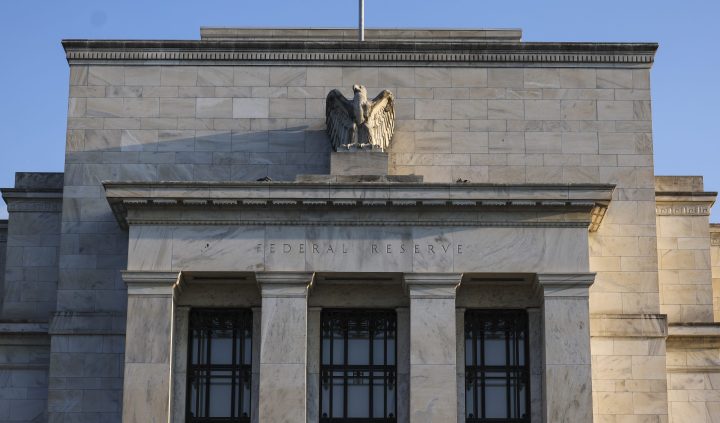
With all eyes on interest rates, the Fed’s shifting balance sheet flies under the radar
With all eyes on interest rates, the Fed’s shifting balance sheet flies under the radar

The Federal Reserve’s interest rate decisions get all of the attention. But there’s something else humming in the background that affects what you pay for a mortgage, and it doesn’t make the headlines. It’s what’s called the Fed’s balance sheet.
The balance sheet is a mountain of treasury bonds and mortgage backed securities the Fed owns. It bought them at various times when it was trying to stimulate the economy — most recently during the pandemic. But we hear more about the Fed’s interest rate hikes.
Former Fed Economist Claudia Sahm said to think about these two Fed tools as dancers. The balance sheet is the quiet one — the interest rates get all the attention.
“It’s like you have someone doing a waltz in the background and the person center stage is doing modern dance or something where they’re just like flailing around all over the place,” Sahm explained.
Sahm said that modern dancer hogging the spotlight is the Fed’s policy of raising interest rates. This is designed to do a number of things. It can chip away at inflation, and cool off the housing market.
Over the past year, “Mortgage interest rates have more than doubled,” Sahm said.
That means fewer people are buying houses. With less demand, home prices fall, cooling inflation. The Fed is also trying to shrink its balance sheet. That means letting some of its treasury bonds, and some of those securities backed by mortgages, roll off as they mature.
And the Fed isn’t buying any more of those mortgage-backed securities. That also pushes up mortgage rates.
With the Fed out of the picture, “somebody else has to buy these mortgage-backed securities and with fewer buyers, that bids up the price of the mortgage,” said Aaron Klein, an economist at the Brookings Institution.
Klein said when you buy a house, your bank doesn’t hold onto your mortgage. It gets bundled up with others into a mortgage-backed security and sold to an investor.
Now that the Fed has walked away from the table? Banks are relying on private investors who demand a higher return.
The Fed figures, if all goes according to plan, the shrinking of its balance sheet will have the same effect as an interest rate increase of as much as three quarters of a percentage point. But that’s a big if.
“The Fed is making it up as it goes along,” said Kristina Hooper, chief global market strategist at Invesco. “Both building up that balance sheet was uncharted territory and similarly reducing its balance sheet is uncharted territory as well.”
Hooper said this Fed balance sheet stuff will affect mortgage rates. But it’s not black and white, and it’s not at all like the tool that gets most of the attention — that wild dancer hogging center stage — the straight-up interest rate hike.
There’s a lot happening in the world. Through it all, Marketplace is here for you.
You rely on Marketplace to break down the world’s events and tell you how it affects you in a fact-based, approachable way. We rely on your financial support to keep making that possible.
Your donation today powers the independent journalism that you rely on. For just $5/month, you can help sustain Marketplace so we can keep reporting on the things that matter to you.











